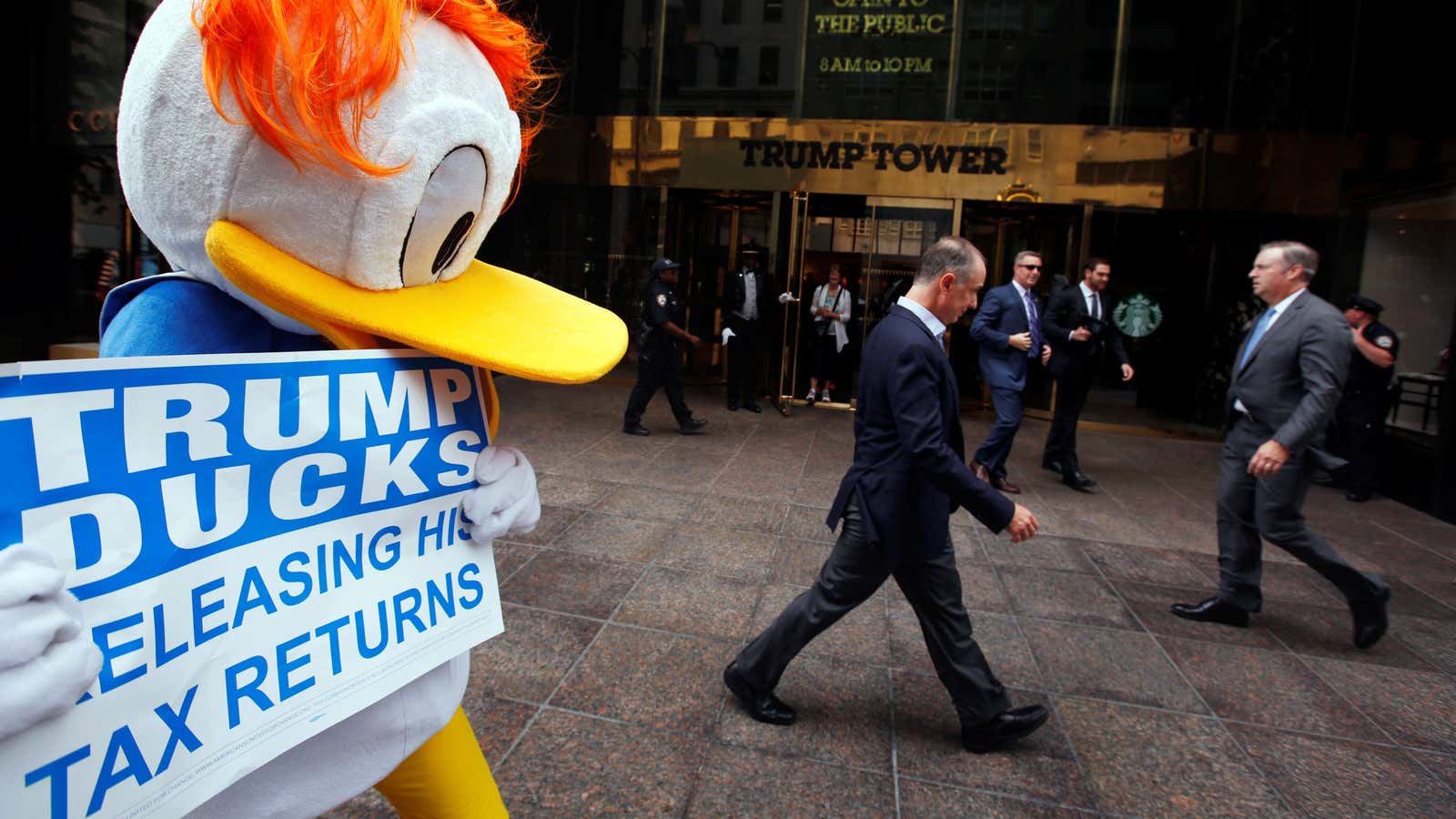Americans are willing to share most everything—sexual histories, disease diagnoses, embarrassing photos—but, as a culture, we draw the line at telling others how much we earn. For reasons of modesty or shame, or to throw off the scent of wealth advisors, disclosing our salary is off limits.
Donald Trump, a man who doesn’t otherwise keep much to himself, has this same affliction. For months he’s avoided releasing his tax returns, despite it being standard practice for presidential candidates. His excuse—that he’s under an IRS audit—doesn’t hold much water, and leads to speculation about what he may be hiding.
With the release of two pages of his 2005 return, it’s not clear what he was afraid of. The return shows he made a lot of money, about $150 million, and paid a decent chunk of it in taxes ($38 million). There’s nothing in the return to be ashamed of, fueling speculation that Trump may have leaked the returns himself.
While Trump is reluctant, public figures in lots of arenas disclose their pay and often with good reasons. Salaries for elected officials are public because it’s only appropriate that taxpayers know where their money is going. The same is true for the presidents of public universities, and the football coaches they employ. CEOs and other top executives of corporations are required to disclose their pay because they’re stewards of shareholders’ capital. In other industries, like entertainment and professional sports, salaries are released strategically in order to demonstrate the success of the athletes or movie star, and to trumpet the value of the agent that helped win them that money.
Individuals may not be happy their wealth is public knowledge, and it could legitimately make them targets for scams or worse. But society benefits when we know how much the most successful among us earn. Disclosure, and the fear of opprobrium, can help rein in excessive pay—recall the furor over New York Stock Exchange chairman Dick Grasso’s $140 million pay package—and force corporate boards and employers to justify their largesse. High pay can also serve as motivation for others seeking to join their ranks.
The culture of secrecy around pay helps employers depress wages, particularly for women. When workers can’t share salary information, they don’t know who is being mistreated. In 2014, US president Barack Obama issued an executive order that prohibited federal contractors from requiring employees to keep their pay confidential, in part to help erase the gender pay gap.
There are lots of areas where we have too much information. Pay is not one of them.
